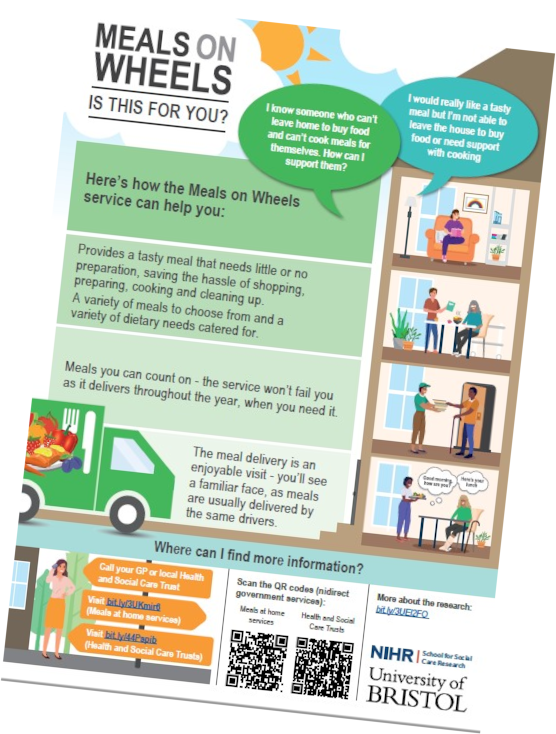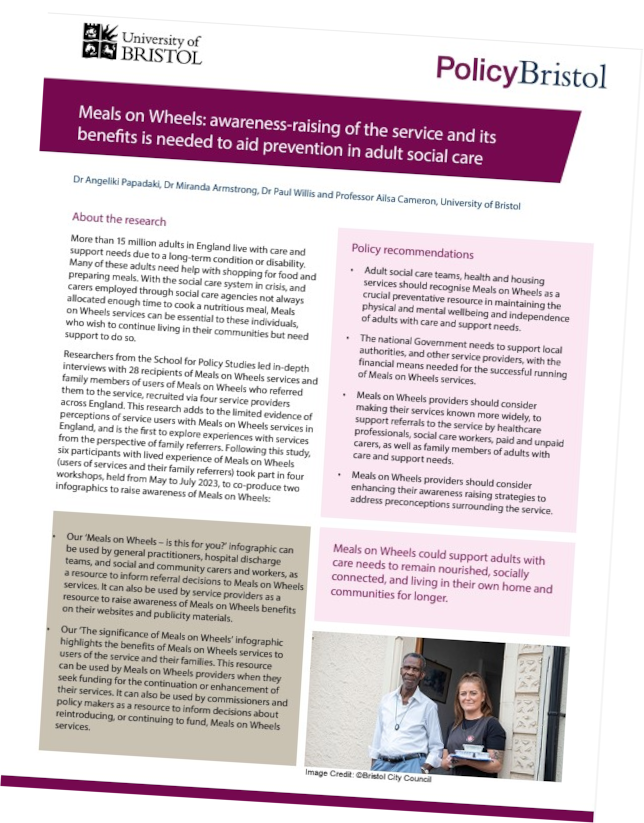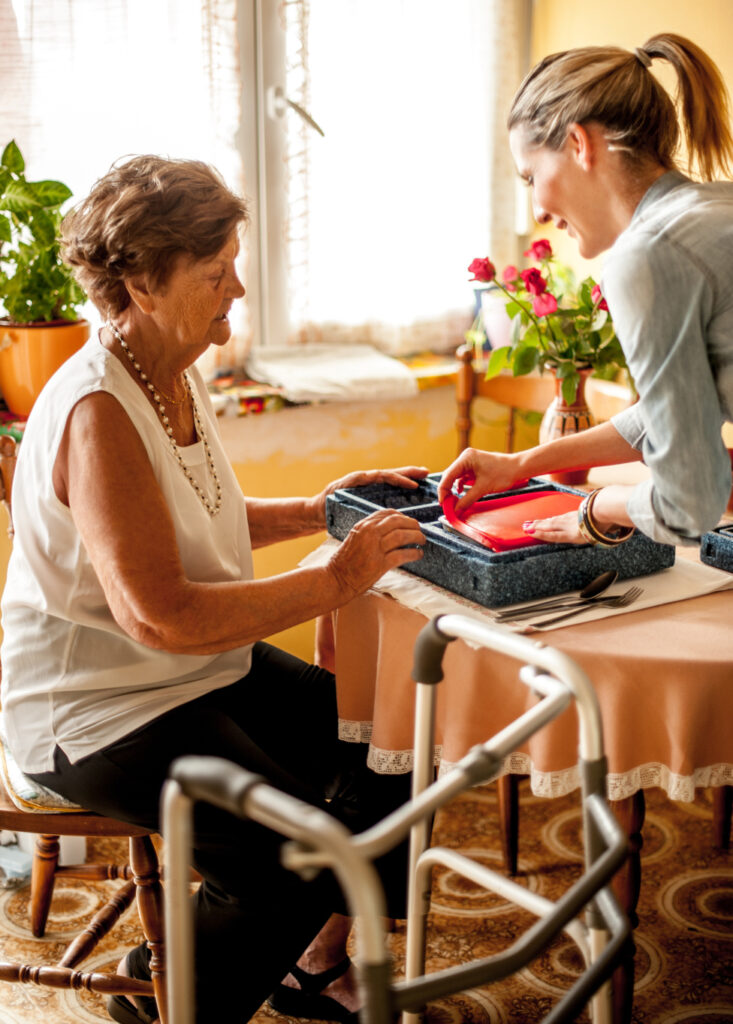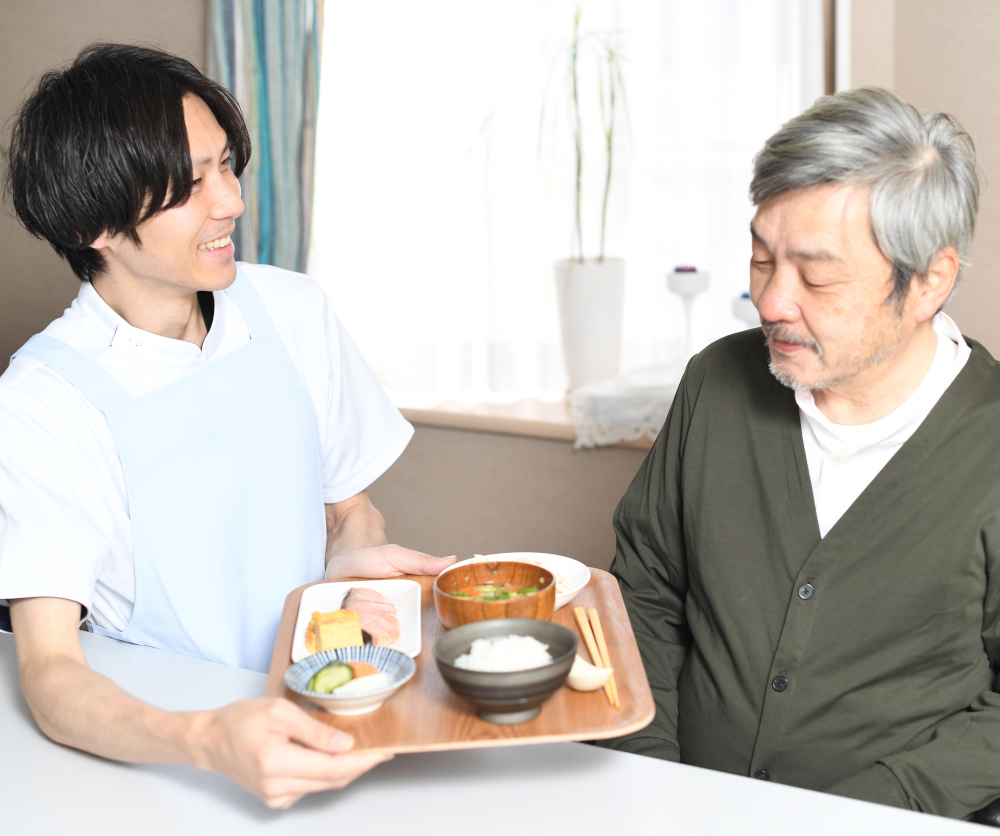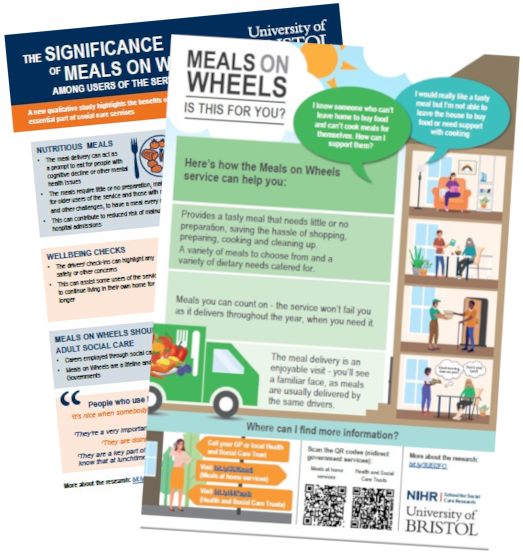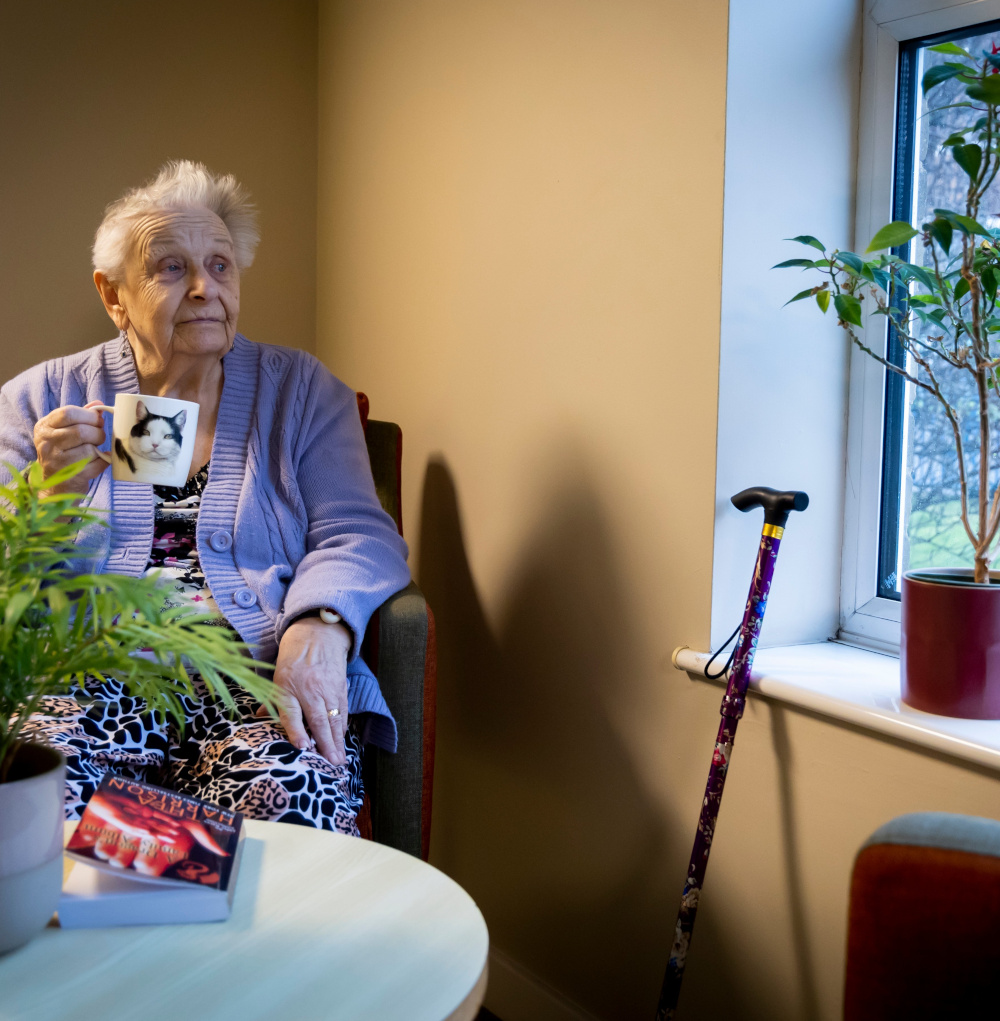Our Meals on Wheels Resources
We have developed a variety of free resources for you to download, based on findings from our research projects, to raise awareness of Meals on Wheels in the UK.
When you download our free resources, you will be asked a few questions which will help us to understand who downloads our resources and how they are used. We thank you in advance for taking some time to support our work and follow this process.
‘Discover Meals on Wheels UK’ graphic poster
This graphic poster (available in .pdf and jpeg. format) contains a QR code that directly links to the Meals on Wheels UK website. The poster can be printed out to help practitioners (e.g. social workers or needs assessment teams) signpost someone to a Meals on Wheels service using offline mediums, for example, when they carry out needs assessments in people’s homes.
The poster can also be used by organisations wishing to signpost to the Meals on Wheels UK website from their own websites.
‘Meals on Wheels – is this for you?’ infographic
This infographic can be used by healthcare professionals (e.g. general practitioners, hospital discharge and enablement teams, district nurses), social and community carers and workers, principal social workers and anyone considering referring an adult with care and support needs to Meals on Wheels, as a resource to inform referral decisions to Meals on Wheels services.
Meals on Wheels providers can also use this infographic on their website and other publicity materials, to raise awareness of their service and help anyone considering commencing the service make an informed decision. Different versions of this infographic are available to reflect the context of each UK nation. Also available in Welsh.
‘The significance of Meals on Wheels’ infographic
This infographic highlights the wider benefits of Meals on Wheels services. This resource can be used by Meals on Wheels providers when they seek funding for the continuation or enhancement of their services, but also as a resource to raise awareness of the service’s benefits on their websites and publicity materials. It can also be used by commissioners and policymakers as a resource to inform decisions about reintroducing, continuing to fund, or enhancing, Meals on Wheels services. Also available in Welsh.
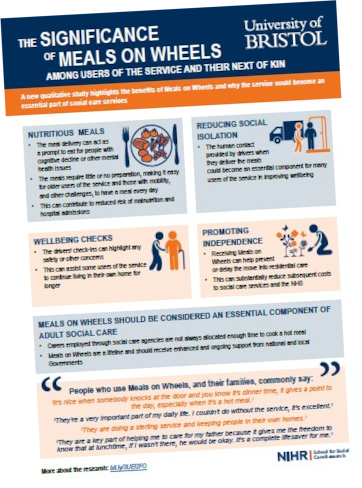
‘Meals on Wheels: awareness-raising of the service and its benefits is needed to aid prevention in Adult Social Care’ policy briefing
This policy briefing presents key findings, and policy recommendations, arising from our research.
Benefits of Meals on Wheels – a film made by University of Bristol’s School for Policy Studies
Short version of 2 minutes, Welsh subtitles available
Long version of 7 minutes, Welsh subtitles available


